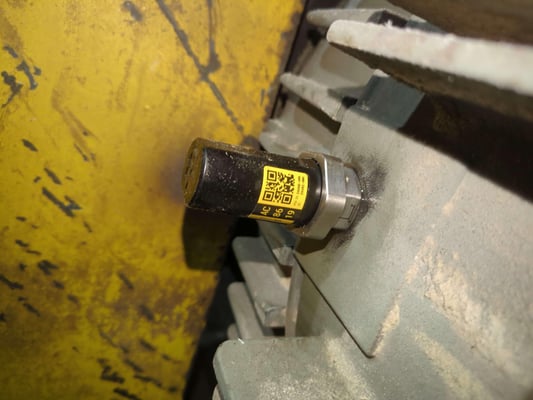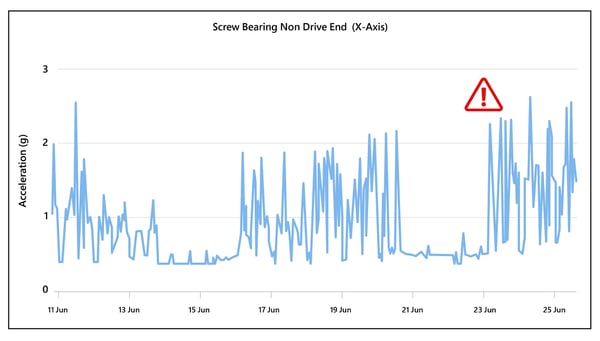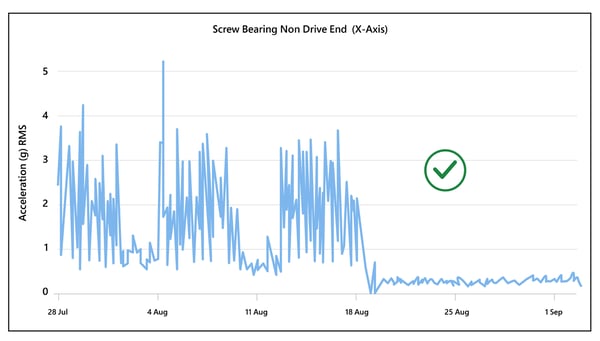CASE STUDY Early Vibration Detection Prevents Screw Bearing Failure at Lumber Mill

Planer compressors are critical to mill operations. A failure can halt production, delay shipments, and increase repair costs. At a lumber mill, Waites' sensors detected abnormal vibration on the non-drive end screw bearing.
FFT analysis revealed 32.2 Hz sidebands around the dominant peak, a clear indicator of bearing wear. Time waveform data showed impacting at 20 g pk-pk, confirming severe distress. Although the site’s initial inspection found nothing abnormal, Waites' analysts kept the team informed that the vibration levels required further investigation. Persistent monitoring confirmed a developing bearing defect.

Acceleration RMS on the non-drive end bearing increased steadily from late May through June. Although the site’s first inspection found nothing abnormal, Waites' analysts advised continued monitoring as vibration levels rose.

After bearing replacement and corrective actions, RMS vibration on the non-drive end returned to baseline within four days. Waites' analysts verified stable operation and reset baselines.
The maintenance team, guided by Waites' analysts, replaced the defective bearing, adjusted operating set points, and prevented water from entering the oil. Vibration levels stabilized within four days of repair, and Waites' analysts confirmed a healthy baseline.